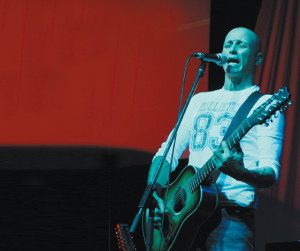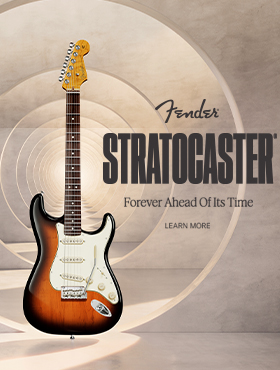DIESEL
March 13, 2007 | Author: Joe Matera
 Diesel is one of those rare talents who has immense popular appeal and is also a musician’s musician. His guitar playing is nothing short of extraordinary. His music is uniquely original and inventive; an immaculate fusion of rock and soul. As a performer Diesel displays a sense of musical maturity well beyond his years. This is further accentuated by the talent and musical prowess of his band in the form of Richie Vez on bass and Lee Moloney on drums. Joe Matera sat Diesel down to chat about his album ‘Coathanger Antennae’.
Diesel is one of those rare talents who has immense popular appeal and is also a musician’s musician. His guitar playing is nothing short of extraordinary. His music is uniquely original and inventive; an immaculate fusion of rock and soul. As a performer Diesel displays a sense of musical maturity well beyond his years. This is further accentuated by the talent and musical prowess of his band in the form of Richie Vez on bass and Lee Moloney on drums. Joe Matera sat Diesel down to chat about his album ‘Coathanger Antennae’.
Coathanger Antennae sounds much rawer and has a certain warmth that was seemingly lacking in a couple of the album’s predecessors. Do you think you got lost in the whole technology sides of things with those previous albums?
I think so because with digital technology it’s so easy to get lost in it. With Coathanger Antennae I tried getting back to actually playing live. I approached it by amalgamating all the parts into one performance so it would replicate what the song would sound like on stage. So I married all the parts together which also made it work a lot better with the drums as well.
This is your seventh studio album to date, is the process getting any easier?
I don’t know, as every time I record the book gets torn up. And I’ve got a memory like a fish so I don’t really retain a lot of things I’ve done. Out of experience now, I don’t get freaked out about a lot of things like before where I was really freaking me out! I can now relax a bit more and let the songs do all the work. As I’ve mentioned earlier in the studio now, I’m trying to go back to more of a live thing instead of getting a track made up of all different parts on a computer. Since I’m pretty comfortable playing live, in the studio I don’t want to sort of rip it all apart and become myopic and analyse everything for the 100th time. I just want to get a good take and a good feel which is what it’s all about.
What gear did you use?
For the record I just used two amps and split it really hard so I’ve got the same type but with a different sound on the left and right, so you can hear the real singularity to it. I used an AC-30 and a little Fender Pro Junior. The AC-30 was more for the bulk of it, to give it some body while the Pro Junior thing had the really nice midrange which brought a sweet distortion factor to it. I used that for the cream on top so to speak. Though by itself, the Pro Junior was a little bit skinny, so I’d turn the Vox up so loud in order to get it to do the distortion thing. So they complimented quite well. Guitars, I used the ‘Crotch” which is kind of a Gretsch clone made by Piers Crocker and a 1966 Epiphone Casino, that both gave me some nice hollow body tones. Most rhythm stuff was done on a 12-string that Piers made for me too, again a Gretsch type with a Duo Jet body and fitted with DeArmond pickups. I didn’t use a lot of effects as it was pretty much straight in. If I wanted to get more distorted tones I’d just use the amp.
While many others fell by the wayside, you survived the ‘80s and ‘90s to still have a successful career today. Why do you think that is so?
I guess I’ve just been true to what my influences have been. And though I’ve been pretty diverse, I’ve always focused on the music and never did anything because it was popular at the time. I’ve always been kind of consistently not in style and not out of style. I’m a blues based artist and that is what I’ll always be I suppose and I don’t say that begrudgingly. I think that is what has given me longevity.
With the onset of the internet and now where bands can become the next big thing via the web, how important do you think has touring become these days?
It’s a different sort of game now. People can gain notoriety through the web more than from playing live. And people aren’t going out and buying records like that used to in the cold hard CD copy format. They’re downloading it and doing other things with it. For my thing it’s always going to be really important to be playing live. It’s the only way an artist can have longevity. If some internet artist comes up and just explodes in popularity around the world and they’re on everybody’s lips, and then if they’re not something special live, they will definitely peter out very quickly. The live environment is where it sorts it all out. It’s kind of the leveller. Once the hype is gone the stage is where an artist is made or broken.


